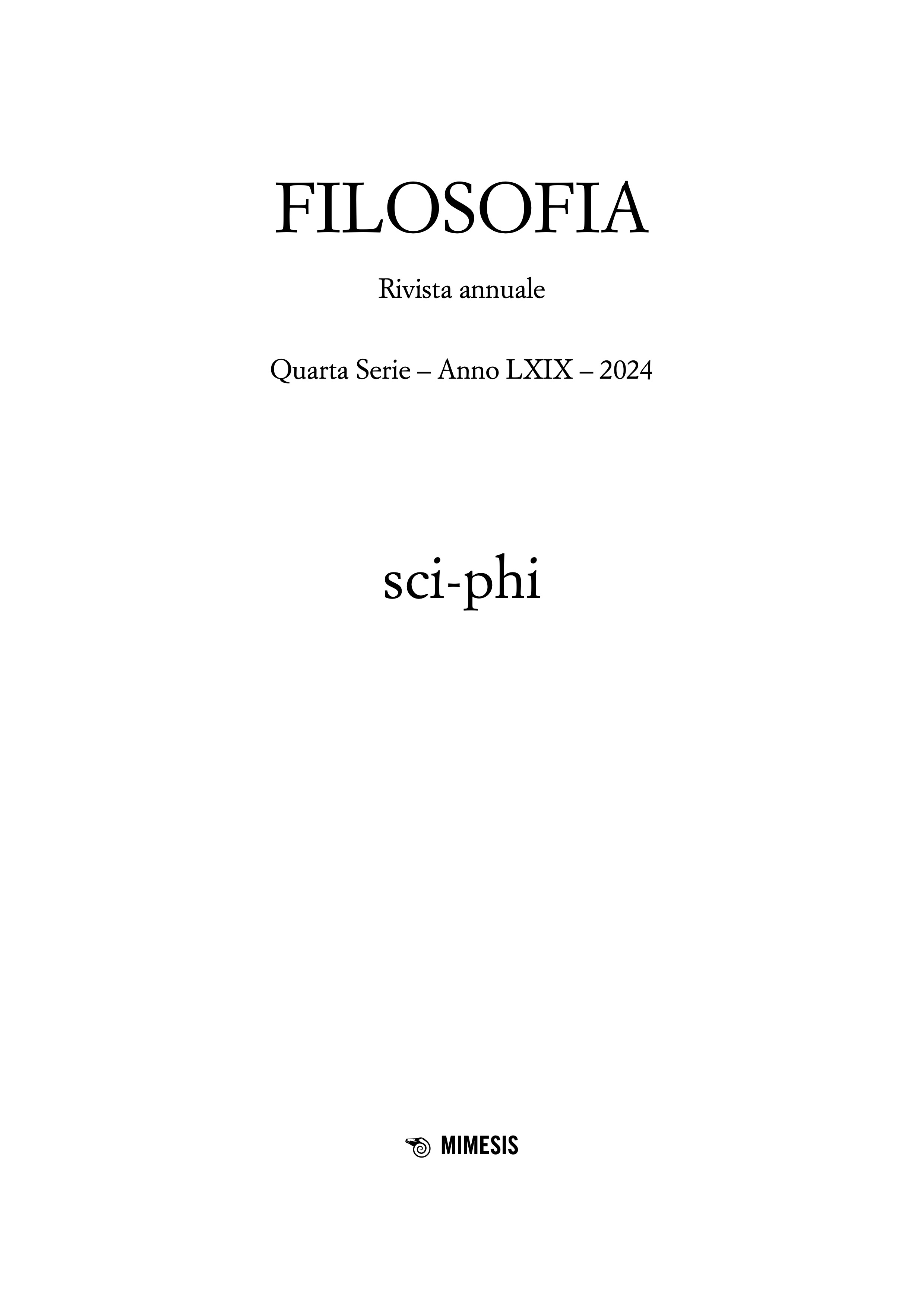Dune: controcultura ed ecologia profonda
DOI:
https://doi.org/10.13135/2704-8195/11195Keywords:
deep ecology, messianism, Naess, Panikkar, ethics subjectAbstract
The article analyzes the film adaptation of the novel Dune (F. Herbert) by Lynch (1984) and Villeneuve (2021) and the centrality of the theme of ecology. The struggle for monopoly of ‘spice’, natural substance that prolongs life and allows travel at the speed of light, is at the center of the clash between two houses Harkonnen and Atreides. The real protagonist of the story is the planet Arrakis, Dune, with its native inhabitants, the Fremen. Inventions, rites, and values of the Fremen are representative of the counterculture that Herbert opposed to the triumph of the empire of capital and the consumption of resources. The future represented by Lynch and Villeneuve, brings out the roots of the ecological question and leads us to a reflection on the meaning of deep ecology, based on the works of Naess and Panikkar. Through the messianic theme and the prophecy of a new world, the article analyzes the theme of conversion to an ecological self.
Downloads
References
Arendt, Hannah. 1996. Le origini del totalitarismo. Tr. it. Alberto Martinelli. Milano: Edizioni di Comunità.
Canguilhem, Georges. 1989, Vie. Paris: Encyclopedia Universalis. Vol. 23: 546-553.
Caporale, Teresa. 2024. Ripensare il nostro rapporto con la Terra. Ecosofia e cosmoteandrismo in Raimon Panikkar. F&S. Scienza e Filosofia 31: 191-105.
Carson, Rachel. 1994. Primavera silenziosa. Milano: Feltrinelli.
Cognetti, Giuseppe. 2009. “Uomo, natura e Dio nel pensiero di Ramon Panikkar”. Religion and society 2: 55-56.
Di Tommaso, Lorenzo. 1992. “History and Historical Effect in Frank Herbert’s Dune”. Science Fiction Studies 3: 311-325.
Ellis, Robert. 1990. Frank Herbert’s Dune and the Discourse of Apocalyptic Ecologism in the United States, in Garnett Roger, Ellis Robert, a cura di, Science Fiction Roots and Branches. London: Palgrave Macmillan: 104-120.
Foucault, Michel. 1988. Tecnologie del sé. Tr. it. Saverio Marchignoli. Torino: Bollati Boringhieri.
———. 1997. Illuminismo e critica. Tr. it. Paolo Napoli. Napoli: Donzelli.
Freya, Mathews. 2023. “Ecophilosophy as a Way of Life”. The Trumpeter 39: 2-20.
Haukeland, Ingvar. 2023. “Becoming Home: Revisiting Arne Naess toward an Ecophilosophy and a Depth Ecology for the 22nd Century”. The Trumpeter 39: 21-44.
Herbert, Frank.1974. Messia di Dune. Tr. it. Giampiero Cossato. Roma: Cosmo.
———.1977. I Figli di Dune. Tr. it. Giampaolo Cossato. Roma: Fanucci.
———. 1980. “Dune Genesis”. Omni 7: 72-74.
———. 2019. Dune. Tr. it. Giampaolo Cossato e Sandro Sandrelli. Roma: Fanucci.
Kratz, Veronika. 2023. “Frank Herbert’s Ecology, Oregon’s Dunes, and the Postwar Science of Desert Reclamation”. ISLE: Interdisciplinary Studies in Literature and Environment 23: 637-656.
Kennedy, Kara. 2021. “Spice and Ecology in Herbert’s Dune: Altering the Mind and the Planet”. Science Fiction Studies 3: 444-461.
Lovelock, James. 2021. Gaia. Nuove idee sull’ecologia. Tr. it. Vania Landucci Bassan. Torino: Bollati Boringhieri.
Marcuse, Herbert. 1964. Eros e civiltà. Tr. it. Lorenzo Bassi. Torino: Einaudi.
Miller, Tyler. 1975. Living in the Environment. Belmont: Wadsworth Publishing Company. Næss, Arne. 1975. La polemica contro la scienza. Tr. it. Emanuele Riverso, in Scienza tra cultura e controcultura, Rivesto Emanuele, a cura di. Roma: Armando Editore: 45-72.
Næss, Arne. 2015. Spinoza e il movimento dell’ecologia profonda. Tr. it. Luca Valera, in Næss, Arne. Introduzione all’ecologia, Valera Luca, a cura di, Bologna: ETS Edizioni.
———. 2021. Il movimento dell’ecologia profonda. Tr. it. Andrea Roveda in Siamo l’aria che respiriamo, a cura di Elisa Cavazza e Aland Drengson, Roma, PianoBEdizioni: 87-126.
Pak, Chris. 2016. Terraforming: Ecopolitical Transformations and Environmentalism in Science Fiction. Liverpool: University Press:117-121.
Panikkar, Raimon. 2015. Ecosofia. La saggezza della terra. Tr.it. Dario Rivarossa, Milano: Jaca Book.
Rueda, Josè Louis Meza. 2010. “Ecosofía: Otra Manera de Comprender y Vivir La Relación Hombre-Mundo”. Cuestiones Teológicas 37: 119-144.
Troiano, Ambra. 2019. “Arne Naess: un’ecosofia tragica”. Ethics in Progress, 10: 142-152. Valverde Campos, Juan Carlos. 2020. De la ecología a la ecosofía: la intuición de Raimon Panikkar, Barcelona: Herder Editorial.
Downloads
Published
How to Cite
Issue
Section
License
Copyright (c) 2024 Antonella Cutro

This work is licensed under a Creative Commons Attribution 4.0 International License.
This work is licensed under a Creative Commons Attribution 4.0 International License



